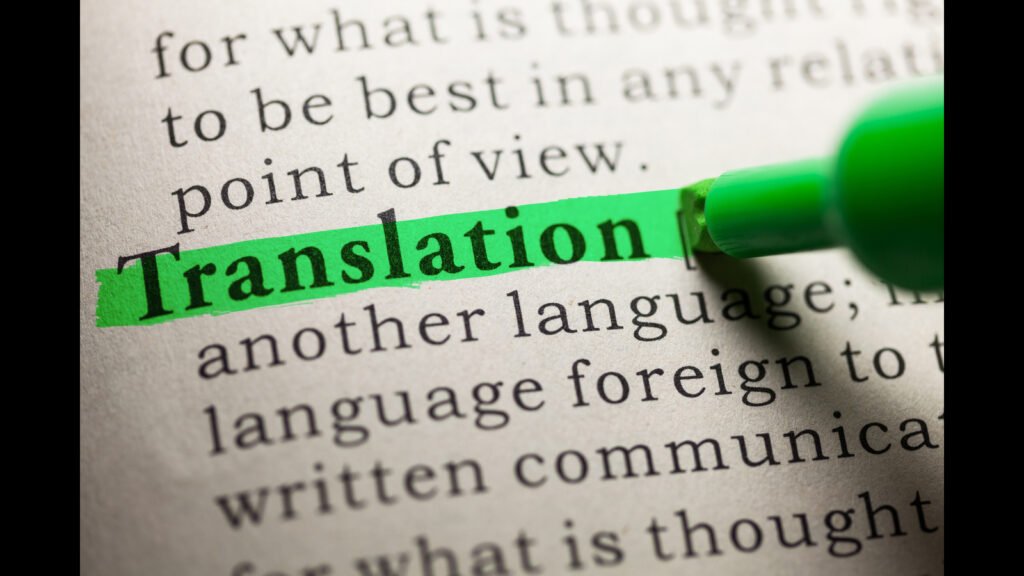
Alphabet, The Parent Company of Google, Recently Announced the launch of Real-Time Translation (RTT) in Google Meet, Its Popular Video Communication Service.

Why text translation has been available for a while and conversation was possible on mobile phones – Apple translate, for instance – by recording in one and replying in another language, RTTHER LANTHUGUAGUAGUAGUAGE Are conversing across the globe on an online communications platform is a leap. Add to it google beam, a device capable of rendering immersive 3D videos. The result would be a video conference in 3d with participants talking in their preferred language. The translation reaches listeners in the voice and tone of the speaker making it super realistic. Behind all this is Google’s upgraded artificial intelligence-based large LARGE LANGUAGE MODEL (LLM) Gemini, Whoose Self-Description If You ASK IT, IS, “I am a AM A A AM A A AM A S Mart Computer Program Theat Can Understand and Talk With You ”.
Until Openai’s bot chatgpt burst into the public domain, speaking to computers was a skill to be acquired in advanced university courses. It took a less years for a Student to have Profciency in Basic, C ++, SQL, Java, Python, or Any of the Other Languages Required to Give Commands in Logical Sequences and Unique Syntax to Computors to Computors to Computors Tasks Done. Artificial intelligence removed that qualification. Llms have it in reverse. Intead of Humans Speaking Computer Code, The Bots Learn Human Languages. Now, it is possible to chat with computers in English, hindi, german, chinese, or, if duly trained, in even less spoken languages. RTT takes it to a new level.
By all Accounts, Google’s service is not perfect, which is to be expected at the start. It will improve, however. Competition will presumally offer one better. Rtt will be a game-corner for multinational companies, online education, governments, and even activism. Companies, for instance, would be able to access talent in regions that do not converse in globally Popular languages such as English.
It could be a blessing for India which speakes, quite literally, in a thosand and more tongues. There are 22 officially recognized languages and close to 20,000 dielects. It is an uphill task when diane dialects and cultural contexts change every few mills, but it opens ups up numerous posesibility and opoportunities. Ideas Cold Flow freely. Talent Spotting and Hiring Could become Easier. Rtt can also provide some unexpected political benefits too Should we choose to look at it with an open mind.
India can protect and preserve its language diversity. Parliamentary Debates Could become Richer when Members Speak in Their Preferred Language. It’s a stretch but language chauvinism could diminish; South Indians would not need to learn Hindi and Indians North of the Vindhyas Blad Skip Tamil or Kannada Lessons. It is Quite another matter that the underlying reason for language conflicts is not necessarily the lack of comprehension but a contest between zealous regionalism and rasping nuralism. Yet, Technology Presents a Chance to Overcome Them, At Least in the Online World.
On the flip side, it neutralies the advantage India has so far as an English-speaking country. The IELTS, a Test of English Proficiency, will lose its relevance. The competitive edge in it services and outsourcing industries of KNOWING English Bold Erode as AI-Based RTT CATCES on. Translation as a vocation would Evently Vanish. Workwal Dwindle for Professionals Such as Dubbing Artists.
The other, More Sinister Fallout of the Technology is it will likely Abet Fraud. It would become an emier to impersonate someone and Victims Rarely Have Recourse. Mumbai, For Instruction, Reported Over 2,000 Cyber Fraud Cases in Four Years to APRIL 2025 but only two have from so far ended in convals. Deep Internet and Mobile Phone Penetration Combined With the Lack of Awareness and Skills Makes Matters Worse.
India has 81 mobile connections for every 100 persons. Although it is a major global player in the tech sector, its population is not very high on information and communications technology skills. More than half of Indians are good at communicating through applications Only 1% Know How to Code. Yet, Advances in AI Tech Offer Indians Constrained by Language and Location to Quickly Bridge Their Skill Gap. India has been the world’s cheapest costs for communication. Combined with the Breaking Down of Language Barriers, It is an Opportunity Should We Choose to see it for what it is.
Dinesh Narayanan is a delhi-based journey and author of the rss and the making of the deep nation. The views expressed are personal




